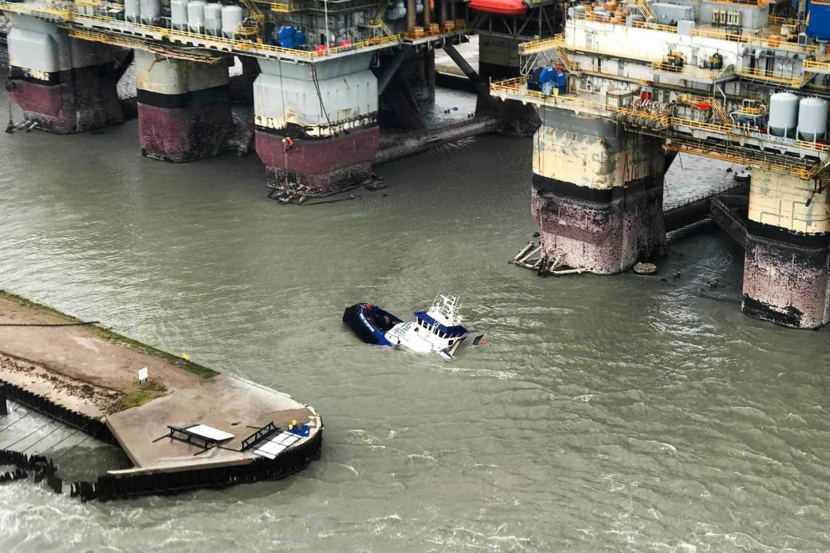
Hurricane — now Tropical Storm — Harvey has caused nearly 100 oil and gas production platforms in the Gulf of Mexico to temporarily shut down.
Since the storm came ashore last Friday, oil production in the region has dropped by more than 300,000 barrels per day, according to data from the Bureau of Safety and Environmental Enforcement.
According to agency estimates, about 22 percent of the oil production and 26 percent of the natural gas production in the Gulf of Mexico has been shut down.
But that drop in production doesn’t necessarily translate to a higher demand for Alaska’s oil, because globally the oil market is oversupplied.
“There’s a lot of ability for the market to absorb a temporary shut-in of some production here or there,” said Chief Economist for the Alaska Department of Revenue Dan Stickel.
Additionally, Alaska’s oil doesn’t compete with Gulf Coast oil. Stickel said they’re essentially going into two different markets.
“Alaska’s oil is all going to the West Coast and competing with international crude,” Stickel said.
As long as production isn’t stalled long-term from the hurricane, Stickel said it’s not likely that oil prices are going to jump significantly.
Alaskans aren’t likely to see an increase in the price of gasoline at the pump either.
Goldman Sachs estimates that the hurricane has taken about 3 million barrels a day of the nation’s refining capacity offline. But, Stickel says that Alaska gets most of its gas from West Coast refineries.
If Gulf Coast refineries stay offline for an extended period of time, gas prices in Alaska could be impacted. When Hurricane Katrina hit New Orleans in 2005, prices at the pump spiked all over Alaska. That storm left crucial oil pipelines and refineries in the Gulf Coast region unable to operate for weeks.
“We’re not really expecting that type of impact from this particular hurricane,” Stickel said.
